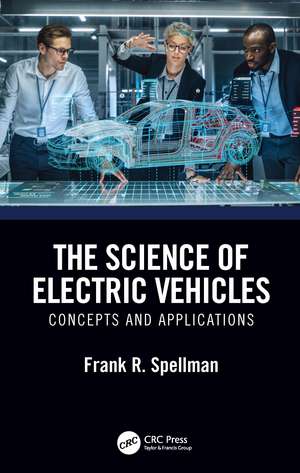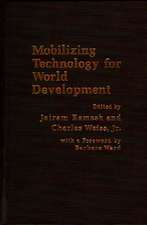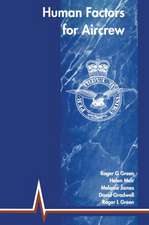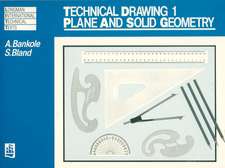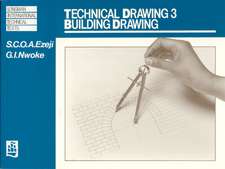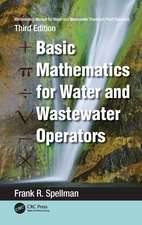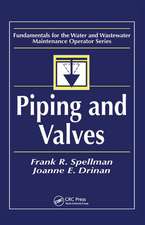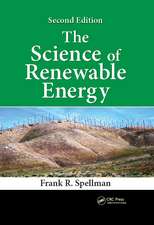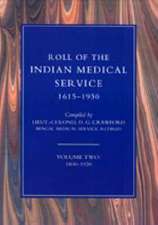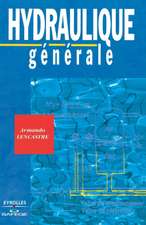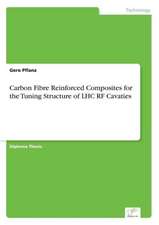The Science of Electric Vehicles: Concepts and Applications
Autor Frank R. Spellmanen Limba Engleză Hardback – 29 mar 2023
Features:
- Presents the basic electrical principles, physics, and chemistry involved in the manufacture of electric vehicles.
- Discusses various battery types, energy efficiency, storage, and more.
Preț: 615.31 lei
Preț vechi: 723.89 lei
-15% Nou
Puncte Express: 923
Preț estimativ în valută:
117.76€ • 122.48$ • 97.21£
117.76€ • 122.48$ • 97.21£
Carte tipărită la comandă
Livrare economică 14-28 aprilie
Preluare comenzi: 021 569.72.76
Specificații
ISBN-13: 9781032366289
ISBN-10: 1032366281
Pagini: 240
Ilustrații: 95 Line drawings, black and white; 10 Halftones, black and white; 105 Illustrations, black and white
Dimensiuni: 156 x 234 x 14 mm
Greutate: 0.5 kg
Ediția:1
Editura: CRC Press
Colecția CRC Press
ISBN-10: 1032366281
Pagini: 240
Ilustrații: 95 Line drawings, black and white; 10 Halftones, black and white; 105 Illustrations, black and white
Dimensiuni: 156 x 234 x 14 mm
Greutate: 0.5 kg
Ediția:1
Editura: CRC Press
Colecția CRC Press
Cuprins
1. Electric Vehicles (EVs). 2. Electron Flow = Traffic Flow. 3. Basic Electricity. 4. Battery-Supplied Electricity. 5. A-C Theory. 6. Fundamental Physics Concepts. 7. Dynamics of Vehicle Motion. 8. Electric Motors. 9. DC/DC Converters. 10. Inverters. 11. EV's Carburetor. 12. Regenerative Braking and More. 13. Battery-Power Alternatives. 14. Economy and Range. 15. Electric Vehicles: The Future.
Notă biografică
Frank R. Spellman, PhD, is a retired U.S. Naval Officer with 26 years active duty and also a full-time adjunct assistant professor of environmental health at Old Dominion University, Norfolk, Virginia, and the author of more than 157 books covering topics ranging from a 14 volume homeland security series, several safety, industrial hygiene, and security manuals and also including concentrated animal feeding operations (CAFOs) to all areas of environmental science and occupational health. Many of his texts are readily available online at Amazon.com and Barnes and Noble.com, and several have been adopted for classroom use at major universities throughout the United States, Canada, Europe, and Russia; two have been translated into Chinese, Japanese, Arabic, and Spanish for overseas markets. Dr. Spellman has been cited in more than 850- publications. He serves as a professional expert witness for three law groups and as an incident/accident investigator and security expert for the U.S. Department of Justice and a northern Virginia law firm. In addition, he consults on homeland security vulnerability assessments for critical infrastructures including water/wastewater facilities nationwide and conducts pre-Occupational Safety and Health Administration (OSHA)/Environmental Protection Agency EPA audits throughout the country. Dr. Spellman receives frequent requests to co-author with well-recognized experts in several scientific fields; for example, he is a contributing author of the prestigious text The Engineering Handbook, 2nd ed. (CRC Press). Dr. Spellman lectures on wastewater treatment, water treatment, and homeland security and lectures and safety topics throughout the country and teaches water/wastewater operator short courses at Virginia Tech (Blacksburg, Virginia). In 2011-2012, he traced and documented the ancient water distribution system at Machu Pichu, Peru, and surveyed several drinking water resources in Amazonia-Coco, Ecuador. Dr. Spellman also studied and surveyed two separate potable water supplies in the Galapagos Islands; he also studied and researched and studied Darwin’s finches while in the Galapagos. He holds a BA, in public administration, a BS in business management, an MBA, and an MS and PhD in environmental engineering.
Descriere
The Science of Electric Vehicles: Concepts and Applications presents the basic electrical principles, physics, chemistry, use of rare earth elements (REEs), batteries, charging, and operation of motor controllers of EVs.
